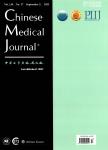Generating universal chimeric antigen receptor expressing cell products from induced pluripotent stem cells:beyond the autologous CAR-T cells
Generating universal chimeric antigen receptor expressing cell products from induced pluripotent stem cells: beyond the autologous CAR-T cells作者机构:Department of HematologyTongji HospitalTongji Medical CollegeHuazhong University of Science and TechnologyWuhanHubei 430030China Department of Scientific Research ManagementTongji HospitalTongji Medical CollegeHuazhong University of Science and TechnologyWuhanHubei 430030China
出 版 物:《Chinese Medical Journal》 (中华医学杂志(英文版))
年 卷 期:2023年第136卷第2期
页 面:127-137页
核心收录:
学科分类:1002[医学-临床医学] 100214[医学-肿瘤学] 10[医学]
基 金:supported by the Key Program of the National Natural Science Foundation of China(Nos.81830008 and 81630006) the National Natural Science Foundation of China(No.81570197) and the Natural Science Foundation of Hubei Province(No.2018ACA140)
主 题:CAR-T therapy Chimeric antigen receptor Immunotherapy Induced pluripotent stem cells Lymphoma
摘 要:Adoptive therapeutic immune cells, such as chimeric antigen receptor (CAR)-T cells and natural killer cells, have established a new generation of precision medicine based on which dramatic breakthroughs have been achieved in intractable lymphoma treatments. Currently, well-explored approaches focus on autologous cells due to their low immunogenicity, but they are highly restricted by the high costs, time consumption of processing, and the insufficiency of primary cells in some patients. Induced pluripotent stem cells (iPSCs) are cell sources that can theoretically produce indefinite well-differentiated immune cells. Based on the above facts, it may be reasonable to combine the iPSC technology and the CAR design to produce a series of highly controllable and economical live drugs. Manufacturing hypoimmunogenic iPSCs by inactivation or over-expression at the genetic level and then arming the derived cells with CAR have emerged as a form of off-the-shelf strategy to eliminate tumor cells efficiently and safely in a broader range of patients. This review describes the reasonability, feasibility, superiority, and drawbacks of such approaches, summarizes the current practices and relevant research progress, and provides insights into the possible new paths for personalized cell-based therapies.



